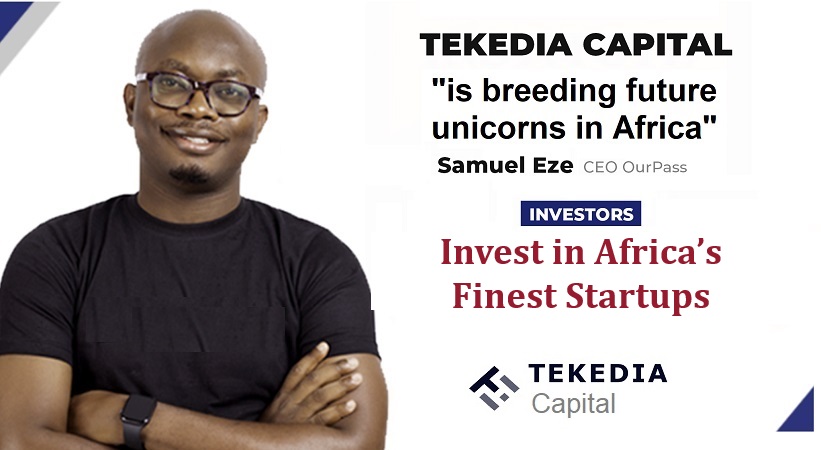News
The World’s Best Crypto Exchanges And Marketplaces

After years of turbulence, including jail time for the founders of the two biggest cryptocurrency exchanges, many providers are getting serious about controls and regulation. Coinbase leads our list of the 20 most trustworthy marketplaces in an industry that still requires caution.
By Javier Paz, Forbes Staff
With the sentencing of former industry kingpins Sam Bankman-Fried and Changpeng Zhao, the cryptocurrency exchange business is by necessity moving toward a more transparent and compliant model.
The transformation has been made easier by a doubling in the price of bitcoin over the past year–it is now trading at $61,568-powered in part by the influx of about $11.8 billion into newly allowed U.S. exchange-traded funds based on the spot price of the cryptocurrency. These ETFs, offered by sponsors including BlackRock and Fidelity, are bringing new credibility to the digital-assets industry, whose reputation had been sullied by a string of bankruptcies in 2022 that culminated in the failure of Bankman-Fried’s FTX exchange. FTX was run in a criminally haphazard way, leading to the former CEO’s conviction on seven counts of fraud, money laundering and campaign-finance violations and a 25-year prison sentence.
Zhao’s Binance ran afoul of U.S. authorities and pleaded guilty to breaking anti-money laundering laws, as well as to unlicensed money transmitting and sanctions violations. The exchange had to pay $4.3 billion of restitution and Zhao himself admitted to a single charge of failing to implement an effective anti-money laundering program at Binance, for which he was fined $50 million and sentenced to four months in prison.
Binance remains the world’s largest cryptocurrency exchange by average daily trading volume, but you will not find it among the firms we ranked. We excluded Binance and Bitmex from our 2024 ranking because of their legal and regulatory infractions. Aside from its problems with the U.S., Binance was expelled from at least 17 countries in the past three years, including India, the U.K. and Japan. One of its reputational issues has to do with not having a fixed headquarters and therefore no home regulator for the majority of its business. Other large exchanges excluded from our ranking include OKX, MEXC and Kucoin due to lack of credible regulatory oversight and what we perceived to be weak internal controls.
Most of our 20 trustworthy exchanges are based in nations with significant oversight of their financial markets; the top three are all in the United States. We considered 646 exchanges and other kinds of marketplaces that allow investors to trade crypto and narrowed down the list based on nine different criteria (See full methodology at bottom).
Leading the 2024 ranking is publicly traded Coinbase, which is not only an exchange but a top cryptocurrency custodian. It has been entrusted with 13% of the world’s bitcoin and ethereum supply and 40% of all crypto assets held on exchanges, a key indicator of trustworthiness. It gets the highest possible score for regulation, although it is not without issues with government overseers. It is currently embroiled in court actions with the Securities and Exchange Commission, which considers almost all digital currencies other than bitcoin to be securities. It therefore considers Coinbase, which makes markets in no fewer than 260 tokens, to be an unlicensed broker dealer. But Coinbase’s issues are civil, not criminal, and it also gets top marks for the quality of its audits and for its acceptance among institutional investors. Coinbase also topped our 2022 list.
The runner-up is not properly a crypto exchange at all. CME Group is the largest regulated crypto marketplace and the closest thing to the arbiter of official bitcoin and ethereum prices. With roots in the old-school Chicago commodities markets, it has more than $2 trillion in U.S. Treasury futures, trillions in other asset classes, and more than $9 billion worth of regulated crypto futures contracts outstanding, the most in the world. ETF issuers such as ProShares as well as retail traders and hedge funds use the CME for hedging and speculating on future prices of bitcoin and ethereum.
In the world of cryptocurrencies, the difference between exchanges and brokers can often appear to be a matter of semantics. For most investors, cryptocurrency exchanges are indistinguishable from securities brokers. They are the middlemen you go through to buy or sell digital assets. With this in mind we have included discount stock broker Robinhood and Fidelity on our list. Robinhood’s has zero fees on crypto transactions compared to Coinbase, which charges a $6 to $17 fee per $1,000 of bitcoin purchased (price takers). Most other crypto exchanges on our list charge transaction fees, ranging up to 0.2%. Robinhood would have scored even higher but was held back by its lack of institutional traders and derivatives. Like Coinbase, it has come under scrutiny by the SEC.
The robust regulation in the U.S. stems from existing financial law supported by a legal court system, but Washington has been unable to pass any crypto-specific legislation. That is not the case in countries like Germany and Japan. Nations that have grown tired of companies asking for forgiveness rather than permission are taking steps to ban bad actors. Since the collapse of FTX, no fewer than 10 countries have passed crypto legislation seeking to identify unlicensed exchanges and create basic disclosure requirements and consumer protections. The 2023 Markets in Crypto Assets (MiCA) directive, the first piece of crypto legislation from a major economy, is going into effect this year in the European Union, with rules to ensure fair and orderly trading and objective criteria for the efficient execution of orders. Dubai launched its Virtual Assets Regulatory Authority (VARA) in 2023, administering spot and derivatives licenses that require exchanges to share information about large market exposure.
Forbes last ranked crypto exchanges in March 2022, and at the time CoinGecko indicated there were about 6,500 tokens. Today, the crypto count surpasses 13,000. Our ranking began with 646 exchanges identified by CryptoCompare, CoinMarketCap, CoinGecko and CryptoRank. We cut the list to 20 companies from 60 in 2022 with our main focus on compliance, solvency and security.
We also wanted to emphasize that market attention is primarily on bitcoin and ether, two assets that make up a combined 66% of crypto’s $2.36 trillion market capitalization. Bitcoin and ether represent roughly 76% of the $444 billion in assets held in custody by the exchanges and dealers on our list, while the remainder came from hundreds of smaller tokens. The opposite is true for many large exchanges that did not make the cut, like the unregulated MEXC and Gate.io, based in the Seychelles and Cayman Islands, respectively. For these excluded exchanges, bitcoin and ether represent just 33% of the assets they held in custody.
In an industry that is largely unregulated and unaudited and in which hacks are common, the most important job for exchanges is to keep tokens safe for investors. Our methodology reflects this goal. Each exchange had to meet a high regulatory threshold for inclusion, earning at least seven out of 10 possible points. (Note: Each category is graded on a scale from 1-10). There are seven U.S.-domiciled firms in our 20 exchange ranking, four each from Europe and Japan, two based in South Korea and one each from Singapore, Dubai and Hong Kong. The list includes firms across the board on pricing strategies and services offered. Some, such as Coinbase and Bitpanda, have relatively high transaction fees for retail traders, while others have employed low-cost strategies.
We included derivatives exchanges that specialize in trading options and futures, that give exposure to crypto assets via regulated financial contracts to reflect the growing importance of these products for bitcoin trading. We did not include decentralized exchanges, which operate without human intervention.
Forbes Crypto Exchange Rankings 2024
SCROLL RIGHT TO SEE THE FULL TABLE
The Top 20
#1. Coinbase
Among pure crypto exchanges, Coinbase is clearly the favored custodian for traditional institutions and it has benefited from the new spot bitcoin ETFs, eight of which use it to hold their crypto. At the end of the first quarter bitcoin and ether in custody rose to $219 billion. Retail fees are relatively high, averaging nearly 1.7%. Coinbase is the largest U.S. crypto exchange by trading volume and largest globally by assets held in custody.
#2. CME GROUP
Established in 1898 and formerly known as the Chicago Mercantile Exchange, the CME Group is the largest operator of financial derivative exchanges in the world. CME launched bitcoin futures in December 2017 and as of early May it had more than $8 billion worth of bitcoin futures contracts outstanding. ETF issuers such as ProShares and retail traders use the Chicago-based exchange for hedging and speculating on the future price of bitcoin and ether.
#3. Robinhood
This discount broker, famous for gamifying investing, allows its 23 million customers the ability to trade 15 cryptocurrencies. It began offering free crypto trading in 2018 in the U.S. and expanded to Europe late last year. The firm held $15 billion of cryptocurrencies in custody as of March 31.
#4. Upbit
Think of it as South Korea’s Coinbase, except that Upbit has gained dominance in trading with its low fees (5 basis points). Upbit, which is partly owned by one of Korea’s richest investors Song Chi-hyung, is the fourth-largest custodian of bitcoin among crypto marketplaces.
#5. Deribit
The world’s largest crypto options marketplace, Deribit also offers spot and perpetual-futures trading and the bitcoin equivalent of the equity market’s CBOE Volatility Index index. In the wake of the FTX debacle, the exchange moved its headquarters and operations from Panama to Dubai, which is known for its experience regulating crypto spot markets and derivatives. Deribit had $21 billion of bitcoin and ether options contracts outstanding as of May 10. Spot bitcoin trades are free but off limits to U.S. based investors.
#6. Bitstamp
This Luxembourg-based global crypto exchange was born in 2011 and unlike crypto rivals has taken a by the book approach to getting regulatory approval in every market it enters. It holds more than $3 billion in bitcoin and ether for clients.
#7. Crypto.com (tie)
This budding exchange, owned by its founders (Kris Marszalek, Rafael Melo, and Bobby Bao), spends big on marketing. In 2021, it spent $700 million for 20-year naming rights to the arena home of the Los Angeles Lakers, Clippers, Sparks and Kings. The exchange recently reported that it had 80 million clients globally, up from 10 million in 2021. Revenue was more than $1 billion in 2022, mostly from the U.S. The firm has laid off thousands of employees in the past two years.
#7. Kraken (tie)
Second-largest U.S. crypto exchange by trading volume. In 2023, the company laid off 30% of its workforce and founder Jesse Powell became chairman as part of a C-suite revamp. The SEC sued the company in November for failing to register as a securities exchange. Kraken moved to dismiss the case in February, claiming cryptocurrencies are not securities.
#7. Fidelity (tie)
Among traditional firms, the Boston asset manager with $13 trillion of assets has long been a crypto fan. Fidelity Crypto offers clients trading in bitcoin and ether at a spread of 1% (100 basis points) per trade. It also has a growing digital asset custody division. In January Fidelity began offering its Fidelity Wise Origin Bitcoin ETF (FBTC), which now has assets under management of $9.7 billion, the third-highest among the new U.S. funds.
#10. LMAX Digital
Founded in 2018, LMAX Digital is a Gibraltar-based regulated marketplace popular with hedge funds and high-frequency traders. It is one of six constituent exchanges used to generate the CME Group’s bitcoin futures prices. It operates its own custodian firm and is seeking additional licenses in the Eurozone and Singapore. Its standard fee for trading bitcoin is zero to six basis points, but it is not available to retail investors.
#11. Gemini
Created by billionaire twins Tyler and Cameron Winklevoss, this exchange has $13.9 billion in digital assets. During the last crypto runup in 2021, its Gemini Earn program became wildly popular by paying 8% interest on deposits. The program was shuttered during the crypto collapse, leaving customers in limbo. Thanks in part to rising markets, a settlement with New York State will give Gemini Earn customers back their entire $1.1 billion of investments and up to $700 million of lost earnings. Earlier this year, Gemini agreed to pay $98 million to settle civil action brought up by the SEC and New York authorities related to its Earn program.
#12. BitFlyer
The Tokyo-based exchange custodies the most crypto assets in its home market ($4 billion) and touts 0% to 0.1% trading fees. BitFlyer is regulated in Japan, the U.S, and Europe. It was founded with backing from Japanese insurance, banking, and brokerage giants like Mitsubishi UFJ Capital, SBI Investment, and Dai-ichi Life Insurance. The company re-appointed co-founder Yuzo Kano as CEO after an ownership and management spat was resolved in March 2023, and he stated plans to take the exchange public.
#13. Bitbank
Bitbank ot bitbank.cc (not to be confused with bitbank.com) operates in the competitive Japanese market and is one of the four largest crypto exchanges. Its taker fees, charged on bids placed at market prices rather than limit transactions, are 12 basis points, which are low but higher than its large peers. Part of its success can be attributed to its offer of 38 cryptocurrencies denominated in yen, of which bitcoin yen is the largest market. The exchange is audited by Deloitte Touche Tohmatsu.
#14. GMO Japan
Part of GMO Internet group, a technology-and-finance conglomerate that runs the largest retail foreign-exchange service in the world. The exchange traded nearly $10 billion in digital assetstin April. GMO offers Japanese clients 26 cryptocurrencies in yen alongside 14 foreign currency pairs to enable investing in multiple fiat currencies and crypto at zero fees. It also provides lending and staking services.
#15. Paxos
Operates the itBit exchange, issues stablecoins, and creates crypto infrastructure that enables large clients like PayPal, Revolut and Interactive Brokers to trade crypto and offer clients custordy. Paxos is regulated by New York State and has a federal trust charter from the Office of Comptroller of Currency. The firm suffered in 2023 when New York asked it to terminate its Binance USD (BUSD) stablecoin due to inadequate supervision of Binance’s own version, which existed alongside the Paxos-minted tokens.
#16. Luno
Owned by Digital Currency Group, Luno is licensed in seven international jurisdictions (though not the United States) and offers monthly audited attestations of its holdings (attestations are less stringent than audits) . It is known for its simple wallet, or trading interface, with 26 crypto trading pairs on offer. Its transaction volume, however, is on the low side. Fees vary widely, with 10 basis points in Europe and Uganda, 21bp in Indonesia, but 60 bp in South Africa, Nigeria and Malaysia.
#17. Bithumb
Seoul-based and regulated Bithumb is the second-largest crypto exchange by volume and assets serving South Korea. It offers 288 spot coins and 297 trading pairs, mostly against the won. Bithumb is a low fee leader. It normally charges 4 basis points, but in the final months of 2023 it ran a free trading promotion. Still, Bithumb has been profitable for years. Its low cost, regulated status, and wide spot offering have generated a loyal following.
#18. HashKey Exchange
In November 2022, as crypto volatility was spiking, HashKey was securing a crypto exchange license from the Hong Kong Securities and Futures Commission, known for its rigorous standards. The digital asset exchange, which is also a full service securities brokerage, is part of the Hong Kong’s HashKey Group, a diversified financial services firm with offices in Tokyo and Singapore.
#19. Bitpanda
Vienna-based Bitpanda is regulated as a payments firm, e-money provider and virtual-asset provider in Austria and France, allowing it to offer its services to all of continental Europe. It combines crypto services with traditional brokerage of stocks, ETFs, indexes, precious metals and other commodities. It charges a stiff 1.5% in commissions or fees for entering into transactions.
#20. Coincheck
One of the top four Japanese exchanges, despite a major black eye in 2018 when thieves stole $530 million worth of NEM tokens, the fourth-biggest hack in crypto history. Dipping into its own treasury, Coincheck made its customers whole and has since rebuilt its reputation. It holds more than $3 billion in client assets today. Its current offering is limited to eight crypto assets traded against the yen, and fees are low/free depending on the pair. It plans to go public on Nasdaq via a special-purpose acquisition company transaction in 2024.
Crypto Investing: Rules To Live By
1. Don’t fall for slick websites.
The crypto exchange business has few barriers to entry. It doesn’t take much more than creating an impressive looking website, social media profile, and securing a handful of digital wallets. Assets and trading activity can be easily faked. In 2022 we published a research project showing that half of all bitcoin trading activity was likely fabricated. The risks are even higher for investors trading second and third tier tokens, which are a specialty of the lesser quality digital asset exchanges.
2. Verify, don’t trust.
Before depositing your capital at an exchange, its a good idea to investigate it with reputable data providers like Arkham and Defillama say about the assets the exchange holds in custody. If they report less than $100 million in real assets (bitcoin, ether), steer clear. Also, be very wary of any exchange-reported trading data (ie self-reported) , which is often inflated.
3. Check licenses
Crypto-specific licenses are no guarantee of safety and solvency. But more likely than not, having licenses shows that a firm is committed to transparency and complying with rules. You can also verify a license reported on an exchange’s website with the issuing authority. It is important to do so because there have been multiple false claims.
4. Don’t just accept high fees
Users paid nearly 2% in commissions or fees in 2023 to trade at Coinbase compared with near-zero fees trading crypto at Robinhood, LMAX Digital, and several Japanese exchanges. Whether its stock index fund investing or hyper-crypto trading fees eat into returns. We gave affordability has a 10% weighting in our rankings.
5. Crypto trading is more concentrated than it appears.
There may be more than 600 firms offering crypt trading, but Coinbase currently has custody of 44% of all bitcoin and ether held at exchanges. While it is a reputable company with a long audit history from Deloitte, keeping most of your assets at one service provider is never prudent. Consider spreading the wealth around.
6. Forget about fad or so called “memecoins.”
While regulators in some markets–Hong Kong, Japan and South Korea, for example–limit which tokens can be listed on their exchanges, other jurisdictions have few or no barriers. Exchanges will list nearly anything with customer demand as long as they believe that an asset is technically secure and not a security, regardless of whether a token has utility. Buying joke tokens, is not investing, it is speculating or gambling and the only thing that gives these tokens value is the existence of a fool greater than you willing to pay a higher price.
7. Don’t sweat the SEC (for now).
Given that crypto has been especially susceptible to frauds and hacks, the SEC, which is charged with investor protection, is understandably not a fan of crypto companies. In the past few years it has launched suits against Binance, Coinbase, and Kraken. Now, it has issued warnings of likely actions to Uniswap Labs (primary developer of the eponymous decentralized exchange) and Robinhood Crypto. Except for Binance, these exchanges are primarily being sued for failing to register as national securities exchanges under the Securities and Exchange Act of 1934, not for overtly deceptive practices. This is why Coinbase, Robinhood and Kraken are prominent in our rankings.
Methodology
The 2024 Forbes list began with a multi-month study of 646 crypto exchanges listed by sources including CoinMarketCap and CryptoCompare. We concluded that 74% of them lacked sufficient assets under custody to be considered for our list, using data from analytics specialists like Arkham and Defillama. Additional checks for those vetted more thoroughly included products offered on their websites, trading volume, traffic volume and regulatory history, if any. Forbes then evaluated each firm on the list in nine categories on a scale from 1 to 10. The scores were then tallied and weighted by the percentages in the second row of the ranking table above to obtain a composite final score.
BTC+ETH
Represents total holdings of bitcoin and ether. For derivatives exchanges like Deribit and CME, we are counting open interest.
10: $50+ Billion
8: $10B–$49B
6: $5–$9.9 billion
4: $1B–$4.9B
2: $0.5B–$0.9B
1: $0.1B–$0.49B
TRANSPARENCY
Forbes sent a survey to pre-selected firms. Transparency points were earned based on the number of successful responses to questions.
10: 25-28
8: 20-24
6: 15-19
4: 10-14
2: 5-9
0: 0 response
REGULATION
Points earned based on quantity and type of license, combined with reputation of home regulator.
7: Designated Contract Market
2: Virtual asset service provider
3: Payments firm
2: Money transmitter firm
3: Broker dealer
3: Crypto exchange
COST
Points were awarded based on lowest cost entry point for retail investors. Cost is measured in ‘basis points.’ Each basis point is equal to one hundredth of one percent.
10: 0-5bp
8: 6-10bp
6: 11-20bp
4: 20-30bp
2: 31-50bp
0: More than 50bp
AUDIT STRENGTH
Firms evaluated based on auditor quality and years under audit.
10: 5+ years, Big 4 (Deloitte, E&Y, PWC, KPMG)
7: 1-4yrs Big-4
3: Non big-4 audit
2: Pending first audit
0: No audit
INSTITUTIONAL CLIENTS
Top points earned for serving as a reference rate provider to the CME for pricing derivatives clients. Large institutional client base earned a half-score.
10: CME Constituent exchange
5: Has institutional clients
0: Retail only
SPOT VOLUME
Points earned based on average daily spot volume (ADV).
10: $1+Billion ADV
8: $500M-$999M ADV
6: $250M-$499M ADV
4: $100M-$249M ADV
2: $50M-$99M ADV
0: Less than $50M ADV
CRYPTO PRODUCTS
Points given based on variety of product offerings.
2: Crypto futures/options
1: Crypto perpetuals
2: Crypto stocks
2: Crypto ETFs
3: Spot crypto
1: Lending / Staking
DERIVATIVES VOLUME
Points given based on average daily derivatives volume (ADV).
10: $5+B ADV
8: $1B-$4.9B ADV
6: $500M-$999M ADV
4: $250M-$499M ADV
2: $50M-$249M ADV
0: Less than $50M ADV
MORE FROM FORBES
ForbesDubai Unlocked: Inside The Secret Billionaire HideawaysBy Giacomo TogniniForbesHow Much Is Stormy Daniels Making Off Donald Trump?By Zach EversonForbesMeet The Greek Shipping Billionaires Getting Rich Off Russian OilBy Giacomo TogniniForbesBuffett’s 2024 Investment Wisdom: Psychology Matters As Much As FinancialsBy John DoboszForbesThis Pandemic Boom Town Is Also A Surprisingly Wonderful Place To RetireBy Emily Mason
Fuente
News
US Cryptocurrency Rules Delayed by ‘Never-Ending’ Lawsuits

Ripple CEO says cryptocurrency industry still seeking regulatory clarity from US
Speaking to Bloomberg News on Wednesday (July 17), Author: Brad Garlinghouse he said America is behind behind other countries which have already adopted cryptocurrency regulations.
“What we’re seeing, where it’s the UK, Japan, Singapore… even the European Union, more than two dozen countries have come together to provide a framework for cryptocurrency regulation,” Garlinghouse said.
“It’s frustrating that we as a country can’t get that regulatory framework in place. And instead, we have this never-ending lawsuit coming from the SEC that doesn’t really address the problem.”
Ripple has been the target of some of these legal disputes. Securities and Exchange Commission (SEC) sued the company in 2020, accusing it of conducting a $1.3 billion operation offering of unregistered securities tied to its XRP token.
However, last year a judge ruled that only Ripple’s institutional sales of XRP, not retail sales, violated the law, a decision widely seen as a victory for the cryptocurrency industry.
As PYMNTS noted at the time, that ruling has “far-reaching repercussions impact across the digital asset ecosystem, which has long maintained that its tokens do not represent securities contracts.”
However, Garlinghouse told Bloomberg on Wednesday that the company cannot wage multimillion-dollar legal battles over each token.
He spoke to the news agency from the Republican National Convention in Milwaukee, where the party is backing the candidacies of former President Donald Trump and Ohio Sen. J.D. Vance, both of whom are considered pro-cryptocurrency.
But Garlinghouse argued that cryptocurrencies “should not be a partisan issue,” and noted that he had recently attended a conference in Washington that included Democrats, including White House officials.
“I think they were there, listening to the industry… it was refreshing to start having that conversation,” she said.
President Joe Biden earlier this year he vetoed a measure which would have ended the SEC’s special rules for crypto-asset custodians. This legislation was supported by both the digital asset industry and the banking industry.
Ripple early this year donated $25 million to the cryptocurrency industry’s super PAC Fair Smoothiewith Garlinghouse stating at the time that such donations would continue every year, as long as the industry had its detractors.
Second Open SecretsWhich monitor spending For campaigns, the PAC has spent $13.4 million this year, much of it to help defeat Rep. Katie Porter’s (D-Calif.) U.S. Senate campaign.
News
The Future of Cybersecurity in the Cryptocurrency Industry

The cryptocurrency space has had a tumultuous journey, with its fair share of ups and downs. As we look to the future, one area that remains a constant focus is cybersecurity. The digital nature of cryptocurrencies makes them inherently vulnerable to cyber threats, and as the industry evolves, so does the landscape of potential risks.
In 2022, the cryptocurrency market faced significant challenges, with over $2 trillion in market value lost. This event served as a wake-up call for the industry, highlighting the need for robust cybersecurity measures. The future of cryptocurrency security is expected to see a shift towards more regulated and established institutions taking the reins of crypto technology and blockchain infrastructure.
The decentralized nature of cryptocurrencies offers numerous benefits, such as transparency and financial inclusion. However, it also introduces unique security challenges. The risk landscape is filled with threats such as hacking, phishing, ransomware attacks, malware, and social engineering. These threats not only lead to financial losses, but also damage the reputation and trust within the cryptocurrency ecosystem.
Mini-MBA Tekedia edition 15 ((September 9 – December 7, 2024) started recordings; Register today for discounts reserved for early bird customers.
Tekedia AI in Business Masterclass Opens registrations Here.
Join the Tekedia Capital Syndicate and IInvest in Africa’s best startups Here.
The decentralized nature of cryptocurrencies offers many benefits, but it also presents unique security challenges. Cyber risks such as hacking, phishing, and ransomware pose threats to the integrity of digital assets. The infrastructure that supports cryptocurrencies is not immune to vulnerabilities, including smart contract flaws and exchange hacks.
To address these vulnerabilities, the infrastructure that supports cryptocurrencies must be strengthened. Smart contract vulnerabilities, exchange hacks, wallet breaches, and flaws in the underlying blockchain technology are significant concerns that must be addressed to ensure the security and integrity of digital assets.
As cybercriminal tactics and techniques become more sophisticated, the cryptocurrency industry must stay ahead of the curve. The future will likely see more targeted attacks, exploiting weaknesses in infrastructure, networks, and human factors. This requires a proactive and multifaceted approach to cybersecurity.
To mitigate these risks, several measures must be adopted:
Strengthening security measures: Developers, exchanges, and wallet providers must improve security protocols, use strong encryption, implement multi-factor authentication, and conduct regular security audits.
Education and awareness: Users should be educated on best practices for protecting their digital assets, including using strong passwords, recognizing phishing attempts, and using hardware wallets for secure storage.
Looking ahead, the cryptocurrency industry is expected to see an increased focus on robust security measures. Blockchain projects and exchanges are likely to invest in advanced encryption techniques and decentralized storage solutions to protect user assets. The future impact of cyber risk on cryptocurrencies will depend on the collective efforts of stakeholders to address vulnerabilities and strengthen security measures.
Collective efforts by stakeholders in the cryptocurrency space are crucial to address vulnerabilities and strengthen security measures. While challenges persist, advances in cybersecurity technologies and practices offer hope for a more secure and resilient cryptocurrency ecosystem.
The future of cybersecurity in the cryptocurrency industry depends on finding a balance between innovation and regulation. It requires a collaborative effort from all parties involved, from developers to end users, to create a secure environment that fosters trust and growth in the industry. As we move forward, it is critical that lessons learned from past events guide the development of stronger security measures, ensuring the longevity and stability of cryptocurrencies as a vital part of the modern economic toolkit.
Like this:
Like Loading…
News
Bullish XRP and RLBK price predictions rise, outpacing the broader cryptocurrency market, prompting Shiba Inu holders to switch!

Bitcoin’s one-week surge from $60,000 has pushed other cryptocurrencies into an uptrend. However, for many altcoins, this trend has been temporary. Altcoins such as XRP and Shiba Inu (SHIB) have experienced price drops. However, Rollblock, a new altcoin on the Ethereum blockchain, has thrived during this period, attracting thousands of investors looking for long-term growth.
XRP’s Nearly 30% Growth Over Last Week Drops as Selling Pressure Increases
XRP is seeing further price decline as Ripple investors withdraw their profits from the token. The surge in XRP’s price to $0.64 in the past week has provided investors with a perfect opportunity to increase their returns in the short term. With the ongoing sell-off in XRP, XRP has jumped over 8% in the past day and is now trading at $0.59. However, analysts tracking XRP indicators predict that XRP could still extend its gains by over 30% in the coming weeks.
Shiba Inu (SHIB) marks its third consecutive day of losses
Shiba Inu (SHIB) is in a period of adjustment after a week of strong gains. In the last 24 hours, SHIB has seen a jump of over 7%, reflecting a natural market fluctuation. Analysts are observing a death cross on the Shiba Inu chart, which historically signals the potential for future opportunities as the market stabilizes. As investors explore new possibilities, some are diversifying into promising altcoins like Rollblock (RBLK) to strategically rebalance their portfolios and capitalize on the emerging trend.
Rollblock (RBLK) Up Another 7% as New Investors Join Pre-Sale
Rollblock (RBLK) has taken the cryptocurrency market by storm, having attracted investors from more popular altcoins like Shiba Inu (SHIB) and XRP. Rollblock’s growth is attributed to its utility in the $450 billion global gaming industry.
Rollblock aims to use blockchain technology to bridge the gap between centralized and decentralized gambling. With blockchain technology, Rollblock secures every transaction in its online casino, providing transparency and convenience to millions of players who are uncomfortable placing bets on other iGaming platforms.
This innovative use of blockchain technology in the industry has grown Rollblock to over 4,000 new users in less than two months. With plans to add sports betting, this number is expected to grow exponentially in Q3.
Rollblock uses a revenue sharing model that splits up to 30% of its casino’s weekly profits with token holders. This happens after Rollblock buys back $RBLK from the open market and uses half of it for rewards. The other half is burned to increase the price of $RBLK.
Rollblock price has seen four increases in the past month with $RBLK tokens now selling for $0.017. Analysts predict that at the current growth rate, Rollblock could increase by over 800% before the presale ends. For investors looking for a long-term token with growth potential, phase four is the best time to buy Rollblock before its price skyrockets!
Discover the exciting Rollblock (RBLK) pre-sale opportunities now!
Website:https://Rollblockpresale.io/
Social: https://linktr.ee/Rollblockcasino
No spam, no lies, just insights. You can unsubscribe at any time.
News
Texas Crypto Miners Turn to AI as Crypto Declines

As cryptocurrency mining becomes less profitable, Texas cryptocurrency mining companies are switching to supporting artificial intelligence companies.
Bitcoin miners, with their sprawling data centers and access to significant energy resources, are ideally suited for computationally intensive AI operations, and as cryptocurrency mining becomes less profitable, companies see this shift as a logical answer to their problems.
On Thursday, Houston-based Lancium and Denver-based Crusoe Energy Systems announced a multibillion-dollar deal to build a 200-megawatt data center near the West Texas city of Abilene to support advanced artificial intelligence applications such as medical research and aircraft design, CNBC reported. The plant represents the first phase of a larger 1.2 gigawatt project.
Lancium and Crusoe’s move into AI mirrors a broader trend among bitcoin miners. The combined market capitalization of the top U.S.-listed bitcoin miners hit a record $22.8 billion in June. Companies like Bit Digital and Hut 8 are diversifying into AI, with Bit Digital securing a $92 million annual revenue deal to supply Nvidia GPUs and Hut 8 raising $150 million to expand its AI data center.
But the growing popularity of these operations also presents challenges, particularly for the Texas power grid. Last month, the Electric Reliability Council of Texas announced that the state is expected to nearly double its energy production by 2030 to meet the high energy demands of data centers and cryptocurrency operations.
Lieutenant Governor Dan Patrick expressed concern about the projections.
“Cryptocurrency miners and data centers will account for more than 50% of the additional growth. We need to take a close look at these two sectors,” He wrote on Twitter/X. “They produce very few jobs compared to the incredible demands they place on our network. Cryptocurrency miners could actually make more money selling electricity to the network than they do from their cryptocurrency mining operations.”
Analysts predict significant growth in data center power capacity, which is expected to account for up to 9% of U.S. electricity consumption by 2030.
The operations also pose challenges for nearby cities. Earlier this month, TIME reported that a crypto-mining facility was seriously compromising the health of residents in the city of Granbury. TIME reported more than 40 people with serious health problems, including cardiovascular disease, high blood pressure and hearing loss. At least 10 of the residents needed to go to the emergency room or an urgent care facility.
The disturbances were caused by the extreme noise generated by the crypto-mining facility’s fans, which are used to keep the machines cool. While the proposed data center in Abilene would use liquid cooling systems, it’s still unclear whether the facility’s operations would pose a health risk to local residents.
-

 Nfts1 year ago
Nfts1 year agoShardLab Launches ZK-Based Tool for Digital Identity and NFT Vouchers
-

 News1 year ago
News1 year agoWallet recovery firms are abuzz as stranded cryptocurrency investors panic in the bitcoin boom
-

 Bitcoin1 year ago
Bitcoin1 year agoBitcoin, Ethereum, Solana and Cryptocurrency Markets Look Ready to ‘Send’ as Stars Align, According to Investor Chris Burniske
-

 Altcoins12 months ago
Altcoins12 months agoThree Altcoins Poised for Significant Growth in 2024: ETFS, OP, BLAST
-

 Altcoins12 months ago
Altcoins12 months agoAccumulate these altcoins now for maximum gains
-

 Nfts1 year ago
Nfts1 year agoOG Crypto Artist Trevor Jones Unveils Groundbreaking Collection of Ordinals | NFT CULTURE | NFT News | Web3 Culture
-

 Bitcoin1 year ago
Bitcoin1 year agoBillionaires are selling Nvidia stock and buying an index fund that could rise as much as 5,655%, according to some Wall Street analysts
-

 Videos9 months ago
Videos9 months agoKamala just won the boner! [Bad For Crypto]
-

 Videos1 year ago
Videos1 year agoLIVE FOMC 🚨 Could be CATASTROPHIC for Altcoins!
-

 News1 year ago
News1 year agoA Guide for Newcomers & Beginners – Forbes Advisor
-

 Videos1 year ago
Videos1 year agoAttention: a historically significant BITCOIN signal has just appeared!
-

 Videos1 year ago
Videos1 year agoSTOCK MARKET FUD! ⚠️ [Why This Is GREAT For Bitcoin Traders!]














